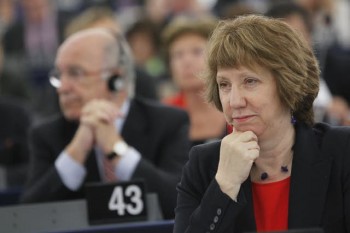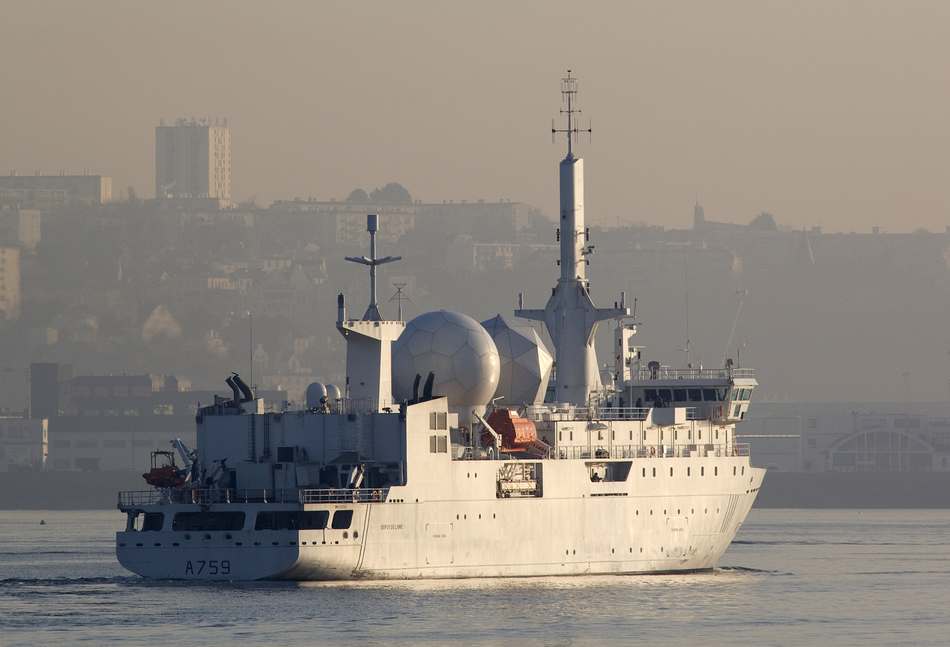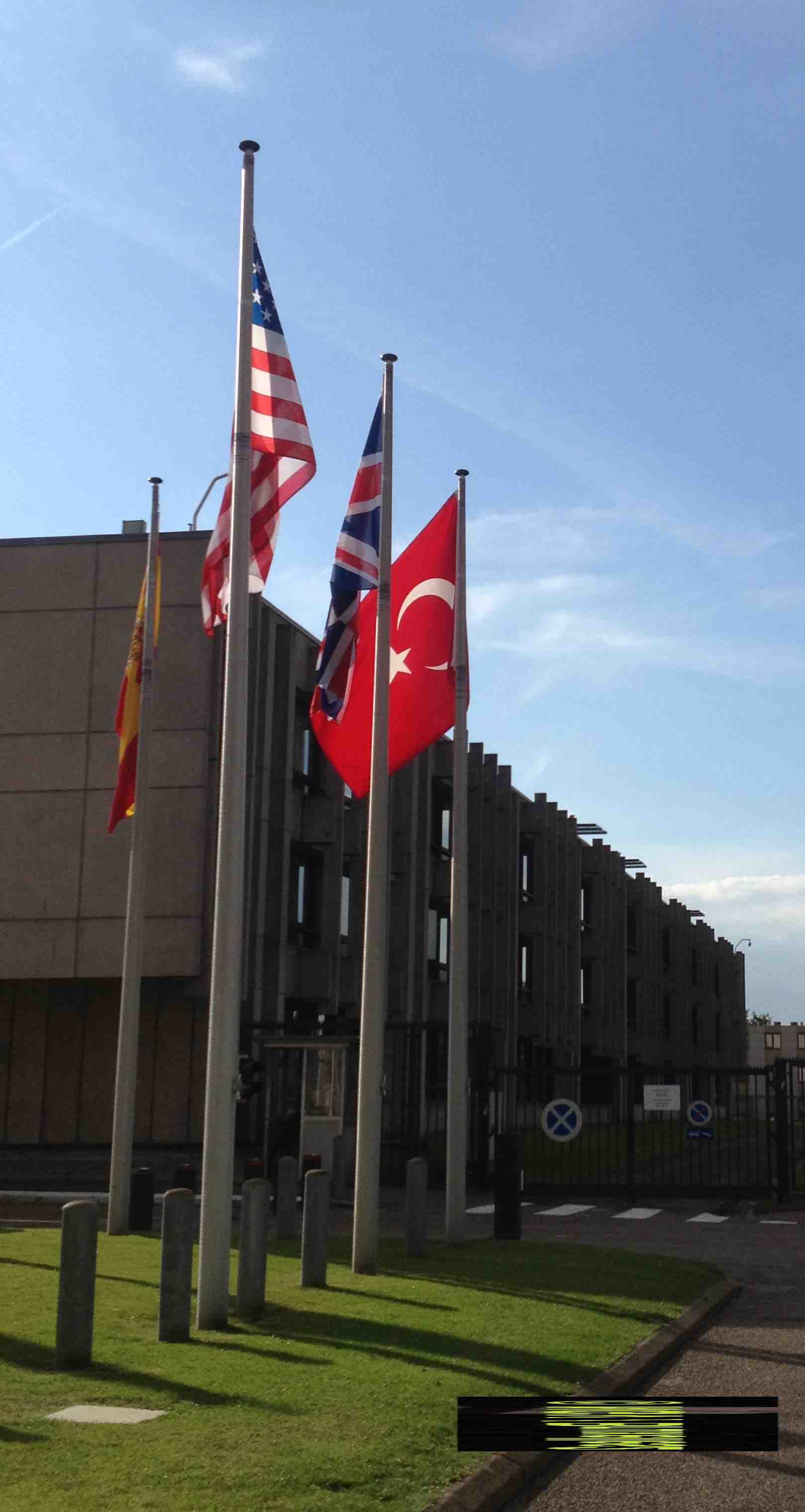The military threat has moved the lines (European Parliament)

(BRUSSELS2 to Strasbourg) During the debate held in the European Parliament, as recognized by the High Representative of the EU for Foreign Affairs " The threat of a strike was certainly the trigger for this Russian initiative of chemical weapons control, said Catherine Ashton during her opening remarks. A point welcomed by Tory MP Geoffrey Van Orden, well known for his Eurosceptic sentiment and for regularly mocking the High Representative. A small event in itself...
Military pressure played
“The military threat certainly played a role. This does not please me. But it is a fact. It would be dangerous to lift this military threat confirmed Flemish Liberal MEP Annemie Neyts-Uyttenbroeck. She closely followed her mentor, Guy Verhofstadt, the former Belgian Prime Minister (VLD) for whom " the carrot needs the stick. We need pressure on the Assad regime to have a political solution ". " The effectiveness of the threat has opened a new door for diplomacy added Hélène Flautre for the Greens. " Everyone knows that there is only one political solution. But we have to articulate all our means: humanitarian, the military threat, our diplomatic tool ". " President Obama is right to hold back on military action in exchange for the neutralization of the Assad chemical arsenal. But he was also right to reserve the right to strike in response to any further use of weapons of mass destruction (WMDs) declared for his part the tory Charles Tannock, spokesman for the conservative group (ECR) for Foreign Affairs.
The military option must be part of a strategy
But not all MEPs share this positive opinion on possible military strikes. As French MEP Arnaud Danjean (EPP) recalled, denouncing " martial and too often unilateral postures ". " The use of force should certainly not be taboo. The military option can be legitimate, justified and effective. But it must always be part of a diplomatic strategy proposing political solutions. The punitive strikes promised by some countries are not a strategy. It is, at best, a bet, very risky, in a sensitive region, for very hypothetical deterrent and political gains. he pointed out. " The diplomatic channel remains the preferred instrument, both to sanction and deter a regime responsible for a flagrant violation of international conventions, and to find a way out of this civil war. "This diplomatic outcome requires" to talk to all the players, especially at the regional level. It also requires that Europe carry a collective weight, with actors with whom it is already engaged in partnerships (Russia) or negotiations, sometimes difficult (Iran for example), he explained, regretting that “diplomatic activity has so far not been commensurate with the Syrian crisis ».
Seize the momentum
The fact that the Assad regime is behind the chemical attacks is no longer in doubt. " Only the Syrian regime possesses both the chemical arsenal and the means to use it. We must take note underlined Catherine Ashton. The High Representative insisted on one point. The Russian proposal to bring this chemical arsenal under control must be taken seriously. " Seizing the momentum and using it is very important. Because what we are seeing for the first time in a long time is the international community united in action on Syria. » However, we must exercise caution and examine developments in detail. First, to ensure that the Syrian regime not only says it will agree to international action, but that it will do so quickly, fully and unconditionally. You have to track (weapons) with transparency and make sure it meets all the requirements. In other words, the answer must be different from the answer we've had in the past. With broken promises, obstacles that have hindered the progress of international efforts. »
Download C. Ashton's speech, here


ping: Russian castling: a pebble in the European garden | Brussels2